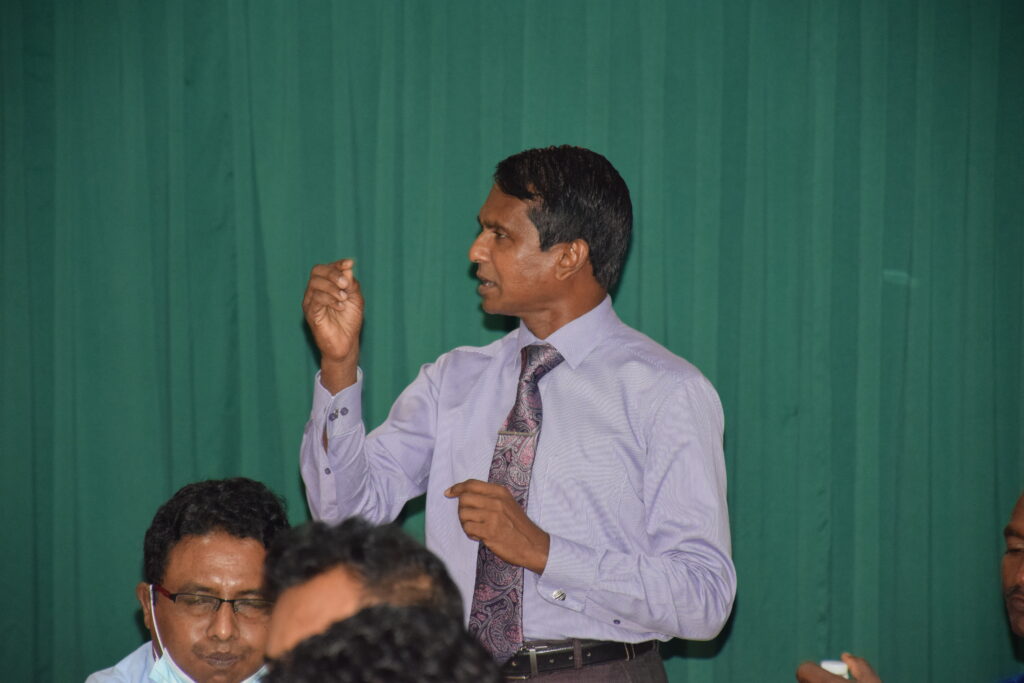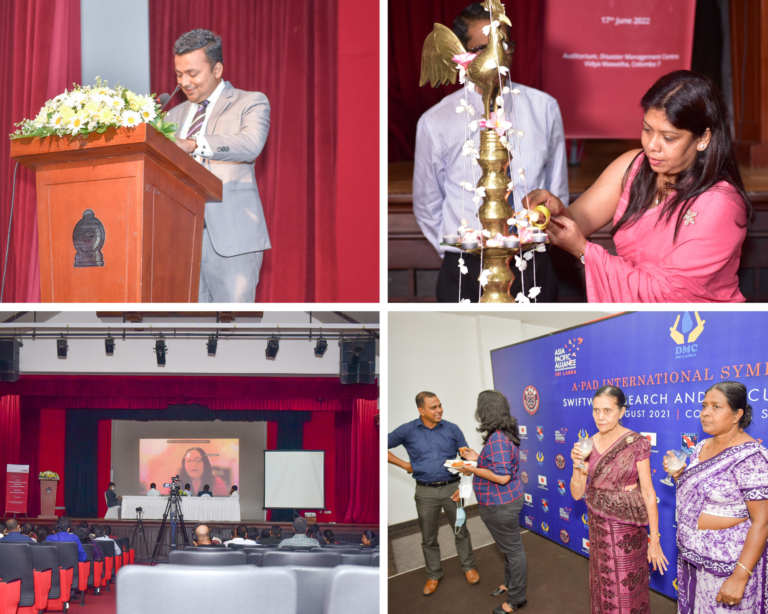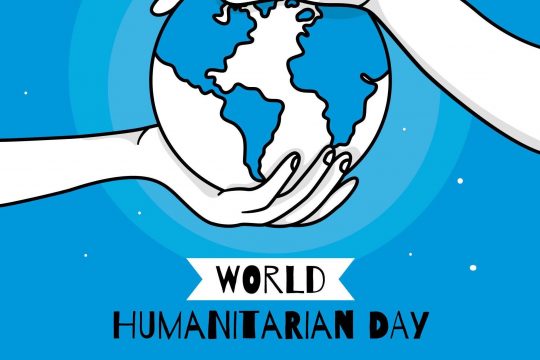
Ensuring Safety for Impacted Populations
The Disaster Management Centre – Sri Lanka (DMC) and the Sri Lanka Preparedness Partnership (SLPP) have collaborated to develop standards for safety centers based on the Humanitarian Charter and Minimum Standards in Humanitarian Response, international standard (SPHERE). A workshop was held in February 2022 to advance the application of these standards. The key objective of the workshop was to comprehensively review SPHERE standards and identify possible sections to be contextualized and revise the standards. The review has supported the preparation of humanitarian standards relevant to aspects such as gender, age, and disability and essential needs such as medical/health and water, sanitation and hygiene (WASH). Relevant thematic sector government and United Nations (UN) specialists, and officers from DMC and National Disaster Relief Services Centre (NDRSC) participated in the two-day workshop. A team of sectoral experts reviewed these documents following which a Training of Trainers (ToT) was conducted with 42 professionals from the shelter, WASH, and health, food, and nutrients sectors for further contextualization.
Activating and Advancing Local Capacities
The Gampaha and Puttalam districts were selected for After-Action Review (AAR) workshops in July 2022. The Department of Meteorology (DoM) and the National Building Research Organization (NBRO) of Sri Lanka analyzed that these localities are most affected by riverine floods in June 2021. The key objectives of the sessions were to explore the disaster response capacities of key local stakeholders involved in disaster management. A total of 133 participants took part in the AAR workshops.
The Most Effective Responses Come Early
The DMC and the Government of Sri Lanka organized the event in association with the United Nations Office for Disaster Risk Reduction (UNDRR), the University of Huddersfield, the Asian Disaster Preparedness Center (ADPC), the United Nations Development Programme (UNDP), and News 1st on International Day for Disaster Risk Reduction (IDDRR) 2022. The session served as an opportunity for these actors to share their views and experiences on the importance of designing multi-hazard, end-to-end, early-warning systems (EWS) under the theme – Early Warning and Early Action for All. The dialogue was centered around the target group of the Sendai Framework: ‘Substantially increasing the availability of, and access to, multi-hazard early warning systems and disaster-risk information and assessments to people by 2030’. The chief guest and guest of honor were the Honorable Premitha Bandara Tennakoon, Sri Lanka’s State Minister of Defense, and General G.D.H. Kamal Gunaratne (Retd), Secretary, Ministry of Defense, Sri Lanka respectively.

Unified Networks for Community Resilience
SLPP created the Sri Lanka Civil Society Action Network for Community Resilience as a coalition of civil society organizations (CSOs) to enhance and connect local disaster management practitioners in Sri Lanka towards safer and more sustainable communities. The partnership was able to activate this platform with support from its local partner, Janathakshan (Gte) Ltd It will serve as a community-driven platform to expand disaster risk reduction (DRR) dialogues and instill sustainable change. The network currently includes 60 organizations that seek to enhance the resilience of at-risk communities in the nation and introduce and implement systematic collaboration among working groups, donors, and policymakers. Sri Lanka Civil Society Action Network for Community Resilience formally acknowledges the creation of an independent network of local CSOs working towards common goals and objectives. In addition to developing linkages across Sri Lanka’s disaster risk reduction (DRR) ecosystem, it will also support building the capacity of its members and function as one voice for local, national, and international platforms.

Guiding Efficient Disaster Risk Management
DMC and SLPP designed and conducted a training program on leadership for DRR to strengthen the leadership capacities of respective officials at the district and divisional levels to reduce the impact of disasters. The two training program was held on 28 – 29 July 2022 and witnessed the participation of 41 decision-makers from the Kaluthara and Bulathsinhala Divisional Secretaries (DS), selected Grama Niladharis (GNs) in Bulathsinhala DS, officers of technical institutions and Armed Forces and Police, and local non-governmental organization (NGOs).
Cultivating Preparedness and Recovery
SLPP continuously works with micro, small, and medium enterprises (MSMEs) to better prepare them for disasters and shocks. With this consideration, the partnership has developed a training program to guide agriculture-based MSMEs to effectively face and recover from disruptive events. A pilot two-day ToT program was held from 19 – 20 December 2022. The event was organized to obtain feedback from participants to refine the training module. A total of 30 participants from relevant government departments, research and vocational training institutes, and agro-based enterprises attended the event.



